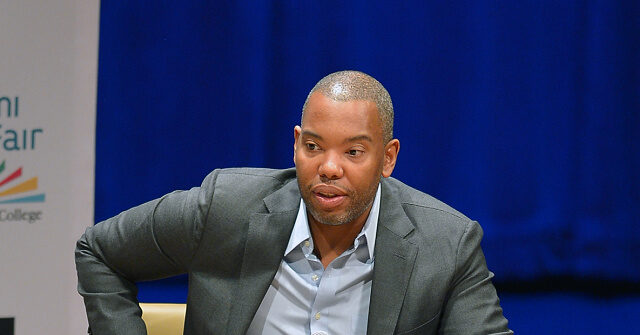In a recent discussion on the podcast “What Now with Trevor Noah,” author Ta-Nehisi Coates raised provocative questions about the nature of violence, particularly in the context of the recent attacks by Hamas in Israel. Reflecting on the atrocities committed on October 7, when over 1,200 individuals were killed, Coates pondered whether he would have the strength to resist similar acts of violence if he were raised in Gaza under oppressive conditions. This introspective commentary highlighted how environments steeped in oppression and poverty could potentially radicalize individuals. Coates’s candid thoughts resonated with Noah, who also drew parallels between historical acts of rebellion and present-day terrorism.
Coates’s exploration of violence extended to a broader critique of the Israeli-Palestinian conflict, which he articulated in his latest book, “The Message.” During a promotional appearance on CBS Mornings, Coates articulated his belief that Israel engages in practices that can be described as apartheid in the territories it controls. While the conversation was civil, reporter Tony Dokoupil, who has personal ties to Israel through his Jewish heritage, challenged Coates’s views, probing why his narrative lacked a consideration of Israel’s historical and ongoing struggles against groups that threaten its existence.
Dokoupil’s tough questioning illuminated the complexities of the Israeli-Palestinian conflict. He confronted Coates on the omission of Israel’s perspective in his book, emphasizing the historical context of the nation surrounded by adversarial states. Furthermore, he questioned whether Coates’s narrative inadvertently legitimized extremist views, suggesting that a more balanced portrayal could foster understanding rather than division. Coates maintained his stance, asserting that the U.S. media already provides ample coverage of the Israeli viewpoint and that his work was not intended as a comprehensive analysis of the conflict.
As the conversation progressed, the reporter’s inquiries delved into deeper topics such as the legitimacy of a Jewish state and the implications of ethnocracy in governance. Coates responded by articulating his discomfort with all forms of states built on ethnocratic principles, making it clear that his objections were not specifically aimed at the existence of Israel as a Jewish state but at the broader concept of ethnically-based governance. His perspective emphasized that while he advocates for Palestinian rights, it does not equate to a rejection of Jewish identity or safety.
In the aftermath of the controversial CBS interview, the network’s higher-ups, including Wendy McMahon and Adrienne Roark, expressed dissatisfaction with the manner in which the questions were posed, indicating that they might not have aligned with the journalistic standards of objectivity the network aims to uphold. Acknowledging the need for accountability in reporting while ensuring an impartial approach to news coverage was deemed vital, according to Roark’s statements.
Ultimately, the dialogue around Coates’s perspectives on Israel and Palestine reflects a broader societal struggle to understand the nuances of one of the world’s most intractable conflicts. While his views invite spirited debate, they also illuminate the delicate balance between advocating for human rights and confronting the historical narratives that underpin long-standing tensions. It raises important questions about representation, the power of narratives, and the responsibilities of authors and journalists to encompass a diverse range of experiences and viewpoints in their work.

